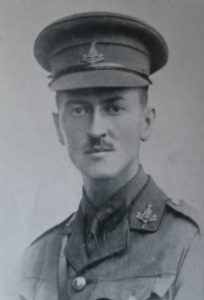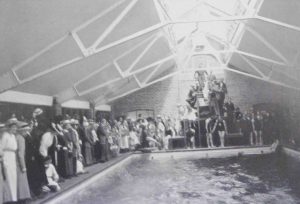See here for an earlier post about Arthur L. Lean.
“Arthur L. Lean (Bootham 1886-1889), who was interned in Ruhleben shortly after the Foreign Notes in the November number of Bootham were penned. Writing from Ruhleben on Good Friday, he says : ” Mr. M. and myself have just been brought back here from the sanatorium at Buckow, where we had completed two months. The country there is very pretty : numerous lakes and wooded hills. A good deal of snow fell at times, and there were keen frosts, so that tobogganing and skating were indulged in. It was delightful to be able to see Con and Phyllis and Olga on two Sundays when they obtained leave from the Berlin police to visit me. The children are all well, but, as is natural, Con seemed rather tired, but keeps her spirits up. The food there was excellent, and I was ordered to be out of doors as much as possible and to take a good deal of exercise. Towards the end of my stay I did a little gentle gardening in the large garden adjoining the Buckow lake. We have both profited much by the change, and during the nine weeks’ stay I gained seven pounds in weight. . . . M. and I have seen the camp military doctor twice, and have promise of permission to leave the camp again and spend four weeks more at another sanatorium. . . . The conditions here have improved during the last two months. The food is better; the German contractor has been relieved of his duties, and the department is run by the camp : English cooks in the kitchen, etc. Football may now be played on the racecourse. The following departments have been organised, each with a chairman, vice-chairman and committee— viz., Finance, Sanitary, Education, Recreation, Health, Watch and Works (Police), Kitchen and Canteen. The military do not seem to be so much in evidence, numerous German newspapers can now be bought in the camp, and absurd rumours about outside and coming events have largely stopped.” Since writing the above I learn that a postcard has just been received from Arthur L. Lean asking for three loaves of bread to be sent out to him weekly. In his earlier letter he said that an occasional pound of tea would be welcome, but that otherwise everything could be obtained on the spot. We do not know whether the present request is due to an inadequate supply of bread, or because the quality supplied is unsuitable for one in poor health, but it is sufficiently disquieting that the request should have to be made.”
From ‘Bootham’ magazine, June 1915


